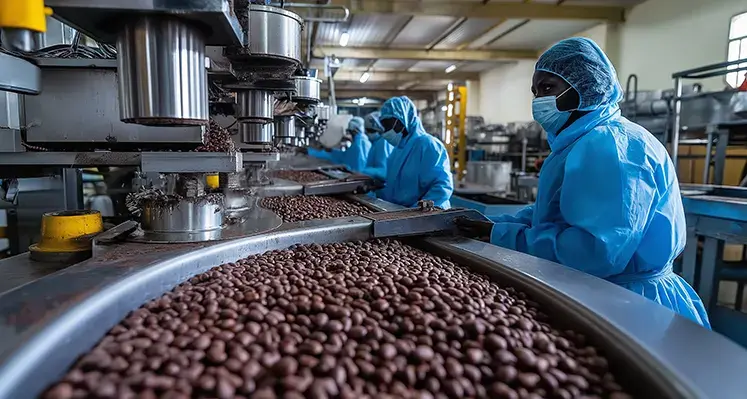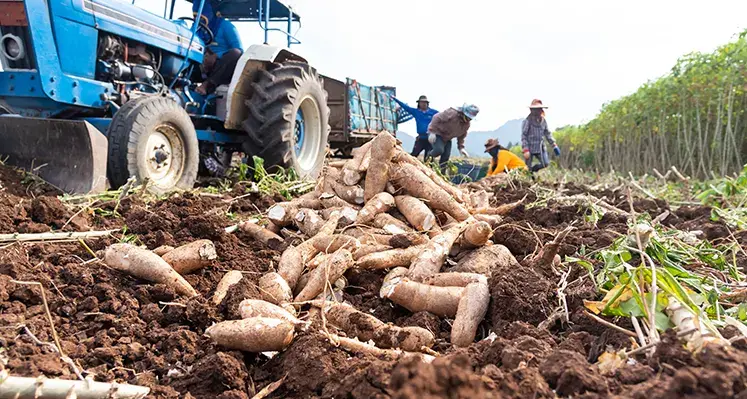
These initiatives form part of a broader economic strategy to boost food production, create job opportunities, and address food insecurity not just in Ghana. (Image credit: MOFA)
Ghana is set to establish itself as Africa’s premier "food nation," fuelled by substantial government investments in agriculture. This transformation is being driven by ambitious infrastructure developments such as irrigation systems, state-of-the-art warehouses, and advanced processing facilities.
These initiatives form part of a broader economic strategy to boost food production, create job opportunities, and address food insecurity not just in Ghana, but across the entire African continent.
In a recent address, President Nana Akufo-Addo expressed confidence in the country’s agricultural future, stating, “We are on track to make Ghana the food hub of Africa, able to feed the rest of the continent.” This statement reflects Ghana's commitment to enhancing the entire agricultural value chain, from cultivation through to food processing and export. Akufo-Addo also highlighted the long-term benefits of this strategy, noting that it would enhance food security, industrialisation, and economic growth across the nation.
Central to Ghana’s agricultural revolution is the Planting for Food and Jobs (PFJ) programme. This flagship initiative has delivered critical support to farmers by providing fertilisers, seeds, and technical expertise, resulting in significant increases in crop production. The president praised the programme, saying, “Our policies have transformed agriculture, with production levels increasing significantly across various crops.” The PFJ is not only improving yields but also fostering an environment where sustainable agriculture can thrive.
The surge in food production has opened new doors for employment, especially among the youth. Traditionally, agriculture in Ghana was perceived as a sector for older generations. However, thanks to modern, technology-driven farming practices, young people are increasingly seeing agriculture as a promising and profitable career path. Akufo-Addo noted, “The youth of Ghana are increasingly turning to agriculture as a viable and lucrative career,” adding that the government’s backing has made this shift possible, reducing youth unemployment in the process.
To reinforce its position as a leading food producer, Ghana is also investing in infrastructure to streamline food distribution. The focus is on enhancing transportation, storage, and processing systems to optimise the food supply chain and minimise post-harvest losses. Moreover, the government is strengthening the link between farmers and markets, ensuring that food production aligns with consumer demand and national requirements.
Beyond securing food for its citizens, Ghana aims to leverage its agricultural success for regional economic growth. By increasing food production, the country plans to become a key supplier to other African nations, boosting regional trade and integration. “Our goal is to ensure that Ghana becomes a leading food supplier for Africa,” the president concluded, solidifying Ghana’s aspirations as a major player in Africa’s food economy.
In summary, Ghana’s future as Africa’s food hub looks increasingly certain. Through strategic investments, innovative policies, and a deep commitment to agricultural growth, Ghana is preparing to lead the continent in food production, not only meeting its own needs but also supporting its neighbours.








